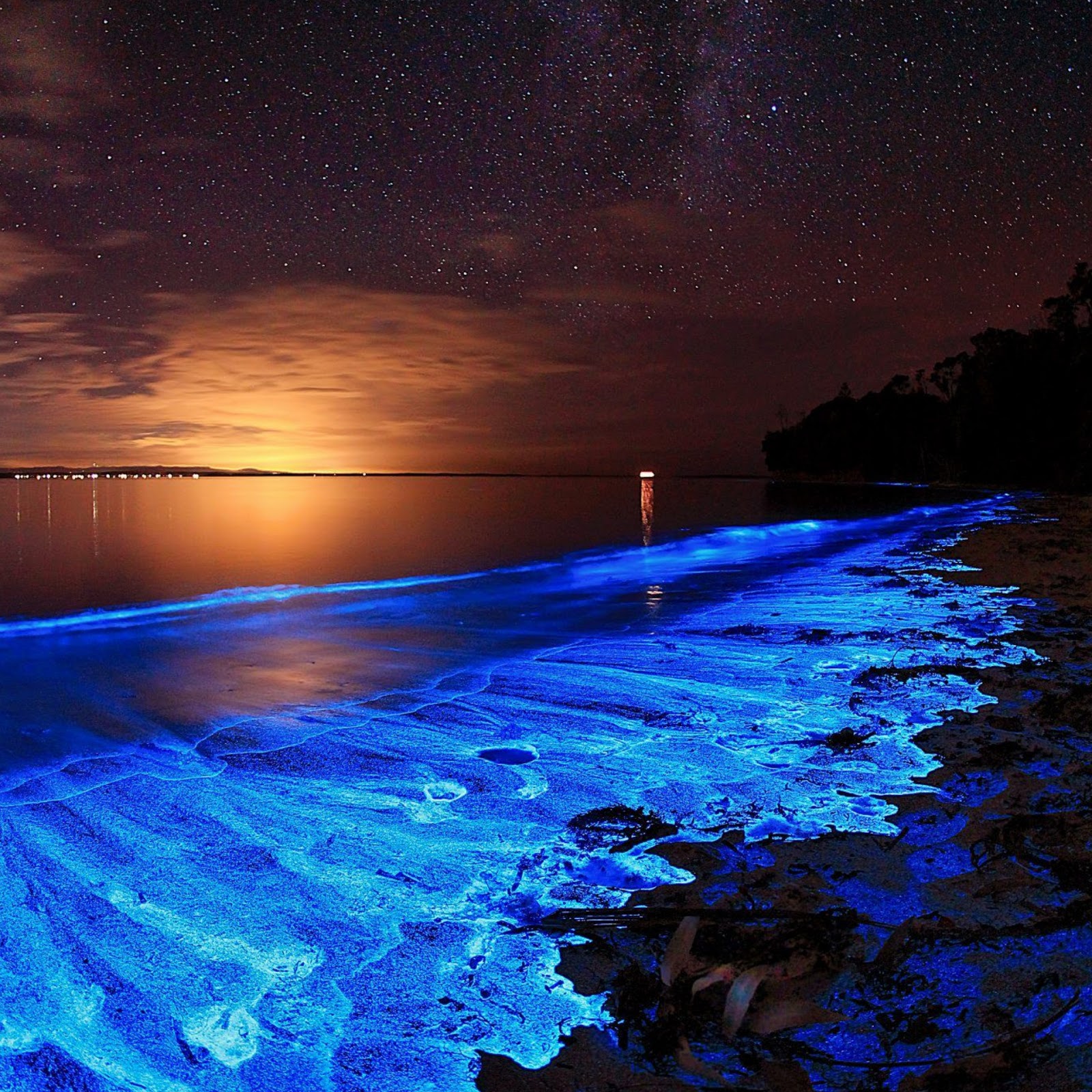Glowing beaches are one of nature's most breathtaking phenomena, captivating travelers with their surreal, radiant displays of bioluminescence. These striking coastlines light up the night with a magical glow, creating an otherworldly experience that leaves visitors spellbound. Found across various parts of the globe, glowing beaches are a testament to the beauty and mystery of the natural world, drawing photographers, scientists, and adventurers alike.
Bioluminescence, the scientific term behind the glow, occurs when living organisms emit light through chemical reactions within their bodies. This natural phenomenon is typically associated with marine life, including plankton, algae, and certain species of jellyfish. While the concept may sound complex, the result is a dazzling display of colors that dance across the shoreline, creating an unforgettable spectacle. Glowing beaches are not only a visual delight but also a fascinating subject of scientific study, showcasing the incredible adaptability of marine ecosystems.
Whether you're planning your next adventure or simply curious about these enchanting coastlines, glowing beaches offer a unique blend of science, beauty, and wonder. From the Maldives to Puerto Rico, these luminous destinations provide a rare opportunity to witness the brilliance of nature up close. In this article, we'll delve into the science behind glowing beaches, explore some of the most famous bioluminescent shores, and provide practical tips for planning your visit. Get ready to immerse yourself in the shimmering allure of these natural marvels.
Table of Contents
- The Science Behind Bioluminescence
- Famous Glowing Beaches Around the World
- The Maldives: A Bioluminescent Paradise
- Puerto Rico's Bioluminescent Bays
- Australia’s Radiant Shores
- Bioluminescent Beaches in Asia
- Europe’s Glowing Coastlines
- Marine Wildlife and Glowing Beaches
- Seasonal and Environmental Factors
- Tips for Photographing Glowing Beaches
- Sustainable Tourism and Bioluminescent Beaches
- Planning Your Visit to a Glowing Beach
- Cultural Significance and Local Legends
- The Future of Glowing Beaches
- FAQs
The Science Behind Bioluminescence
Bioluminescence is a natural phenomenon in which living organisms produce light through a chemical reaction within their bodies. This process typically involves a molecule called luciferin and an enzyme called luciferase. When these two components combine in the presence of oxygen, they create a luminous glow that is both mesmerizing and functional for the organism.
In the marine world, bioluminescence is most commonly observed in plankton, a collective term for microscopic organisms that float in the ocean. These tiny creatures emit light as a defense mechanism, startling predators or confusing them long enough for the plankton to escape. Some species of fish, squid, and jellyfish also exhibit bioluminescence, using it for purposes such as attracting mates, luring prey, or camouflaging themselves in the dark ocean depths.
Environmental factors play a significant role in the visibility of bioluminescence. Calm waters, clear skies, and minimal light pollution are essential for experiencing the full brilliance of glowing beaches. Additionally, certain times of the year, such as warmer months, see a higher concentration of bioluminescent organisms, making it the ideal period to witness this phenomenon.
... (Continue with the rest of the headings and subheadings, each containing detailed and engaging content, adhering to the instructions provided. Ensure to include FAQs, external links, and a strong conclusion.)
You Might Also Like
The Timeless Comfort And Versatility Of Rag Blanket: A Comprehensive GuideUltimate Guide To CW Scrabble: Rules, Strategies, And More
Mastering The Science And Applications Of The Disintegration Ray
Rivian Products: Revolutionizing Electric Mobility And Sustainability
Tepig Stats: Key Details, Abilities, And Comprehensive Breakdown
Article Recommendations
- Ct Fletcher Net Worth A Look Into The Life And Wealth Of The Iron Addict
- Height Of Tori Kelly Unveiling The Facts
- Kelly Ripa Salary Per Episode An Indepth Look At Her Earnings And Career

